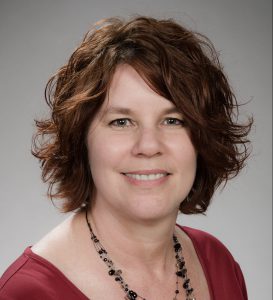We Are Expanding our Impact
WE ARE EXPANDING OUR IMPACT
The campaign has supported an established legacy of scholarship and research that transforms our world. From medicine to climate change, literacy to human rights, the UW’s faculty and students are tackling every major issue facing society today. The campaign has bolstered our drive to solve the greatest challenges of our time through interdisciplinary inquiry and scientific advancements. Together, we turn ideas into the policies, cures and solutions of tomorrow.
AN EARLY START ON MENTAL HEALTH
Parents learn to read babies’ expressions: the furrowed brow that forecasts a wail, for instance, or the expression of delight at seeing a toy. And, of course, the look of concentration that accompanies the need for a diaper change.
Just beneath that adorable surface, however, profound emotional development is taking place.
“There’s a back-and-forth communication between parents and children,” says Monica Oxford, MSW, Ph.D. ’00. Oxford is the executive director of the Barnard Center for Infant Mental Health and Development at the UW School of Nursing. “If an infant cries, they are signaling to their caregiver they need help. When their caregiver responds and the infant’s needs are met, they learn to calm down and regulate their upset feelings.’”
By meeting the needs of babies and toddlers, parents help children learn how to trust, manage emotions and communicate. The interaction between parents and children shapes a child’s brain architecture — and helps set a path for future mental health.
That said, there’s no guarantee that children and caregivers will form a relationship that fosters emotional development. Parents may have a host of challenges — mental health issues, the stress of poverty or domestic violence, even situational depression or anxiety — that can upset the balance. In other cases, the child may have medical needs that the caregiver is not equipped to handle without support.
Unfortunately, today’s medical system isn’t well-equipped, either. “If a pediatrician is concerned about a caregiver and a baby, there aren’t many referral options that support that developing relationship,” says Oxford.
With a five-year grant to establish the Barnard Center Advanced Clinical Training (ACT) Program, Perigee Fund hopes to build a stronger support system for parents and children in Washington state. The program, by recruiting up to 20 mental health postgraduates each year, will train experts who can, when needed, support the developing baby-parent relationship.
“Perigee’s goal with this grant is to build the infant and early childhood mental health workforce,” says founder Lisa Mennet, Ph.D. “We have a focus on families affected by trauma, racism and poverty, and we know that investing early in strong relationships is critical to giving children the best start in life and mitigating the impacts of early adversity.”
Nucha Isarowong, Ph.D., LCSW, hired in January 2020, is the training program’s inaugural director. He’s dedicated to creating a diverse group of providers and tailoring the curriculum to their needs.
“My goal is to create a curriculum that delivers the clinical knowledge and skills these professionals will need in their work, that pays attention to the knowledge they already have about their communities, and that incorporates the social and cultural perspectives of young children and families,” says Isarowong. “I want our graduates to take in all this knowledge and all of these skills so that they’re prepared to strengthen relationships between babies and parents from diverse communities.”
Isarowong estimates that the program will open in winter 2021, and he and Oxford have high expectations for the program’s graduates.
“They’ll be the future leaders in infant and early childhood mental health, and they’ll be mentors to the generation of clinicians after them,” Isarowong says. “They’ll also bring their principles and perspectives to influence policy and legislation.”
Oxford agrees, adding that Perigee Fund’s investment — in addition to building workforce leadership — will also change lives. Program graduates will serve as a new, welcome resource for providers and community programs that want to promote mental health.
“This grant is a foundational opportunity to change the trajectory of families throughout Washington state,” Oxford says.
